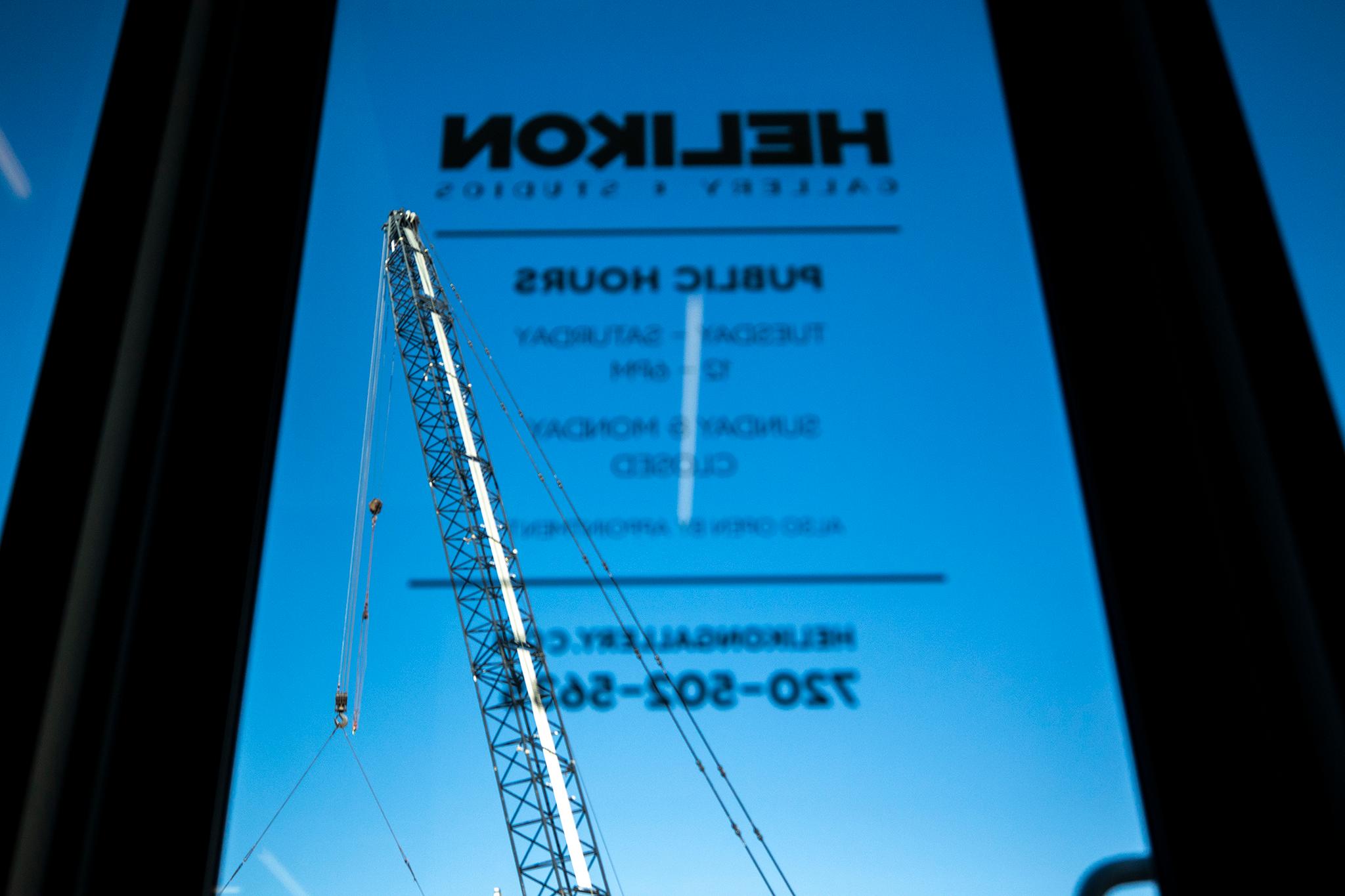On Friday, Helikon Gallery & Studios in Five Points closed its doors for good, facing what the owner says is a tripling of its property taxes. According to Cayse Goldberg, the gallery owner, the property has been in his family for more than 100 years and its evolution perfectly mimics the development of the area, which is now right in the heart of the River North Arts District.
Helikon started out as a salvage yard for the family's demolition business. RTD eventually bought a chunk of the property for a new rail line, which was part of a planned re-development of the area. The family business was forced to close and Goldberg converted the last remaining warehouse into an art gallery in 2011. Development did come and with it an increased property value and a $6,000 a month tax bill. Goldberg says the increase is more than the gallery's monthly revenue.
"There is no consideration for the context of the business," Goldberg told Denverite back in October. "Being in an art district, shouldn't the focus be art?"
Goldberg isn't alone. Small business owners from around the city have started voicing complaints about property tax increases that they say are killing the character of their neighborhoods. Streets like Pearl and South Broadway that have have long been meccas for independently owned mom-and-pop shops have seen property values soar in recent years, but business revenues haven't grown at the same pace. Struggling business owners say they aren't sure how long the city's hot spots will be able to maintain the unique character that helped them build value in the first place.
"Broadway has its own heartbeat that depends on independent businesses," said Tim Martin, the owner of Baker Wine & Spirits on Broadway. "We are only a few years from Starbucks everywhere."
The changes have pushed groups of small businesses on both Broadway and Pearl to start meeting to discuss possible solutions. Many of the problems, they say, lie in state law.
Under a section of the property tax law known as the Gallagher Amendment, commercial properties shoulder 55 percent of the property tax burden and residential properties cover 45 percent. This law also locks the commercial property tax rate in at 29 percent, while the residential property rate fluctuates to maintain the balance. The amendment, inserted in 1982, was intended to protect residential property owners, but as home values in Denver have climbed it has pushed more of the tax burden onto businesses. Despite having some of the highest property values in the country, Colorado as a whole has some of the lowest residential property taxes.
"What has happened over 35 years is that the residential side has gotten really really big in terms of value," said Keith Erffmeyer. "So in order to re-balance the scale, the residential taxes have had to be lowered."
According to Erffmeyer, property taxes can only be assessed based on the value of the property. Under state law, assessors cannot consider the business's revenue or type. In areas where the property value has suddenly spiked, this has had a profound effect in making residential buildings much more viable financially than other types of business.
"It makes perfect financial sense to bulldoze small businesses and make it large scale residential," said Culver Van Der Jagt, a lawyer who moved his office on Pearl Street to his home because he could no longer afford the taxes.
Both Tarver and Van Der Jagt have been organizing meetings for businesses in an effort to come up with a solution. At a meeting last week Jolon Clark, the councilman for Denver's District 7, which includes the small business heavy sections of both Pearl Street and Broadway, came to listen in, but wasn't sure that the city of Denver can offer many solutions.
"There were a lot of good ideas," Clark said, "but we have to see what the city can do within state law."
Residents are also concerned. Last year, residents around Pearl Street started to blow the whistle on what they called a "threats" to the neighborhood's character from some of the large apartment buildings going up. In response to this some proposed a "design overlay," which would sit atop current zoning laws and would limit the height of buildings while also requiring some sort of commercial element on the ground floor.
While some see this as an answer to disappearing commercial space, Van Der Jagt says it would squeeze businesses even more by limiting their options for construction. According to Van Der Jagt, he attended one meeting about how the overlay would help small businesses and became angry when he saw they were serving Costco muffins.
"It's a death spiral that gets worse at every turn," he said.












